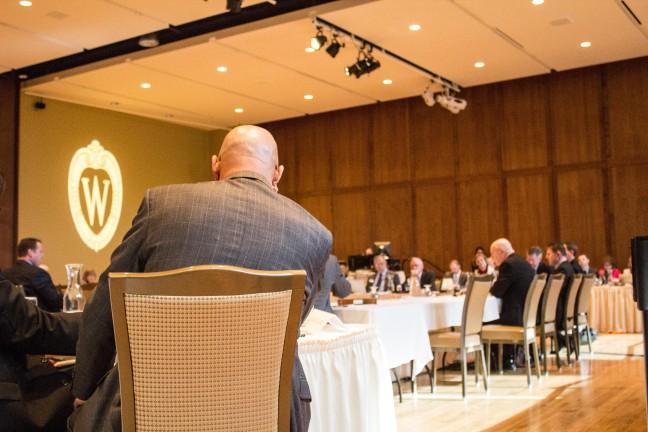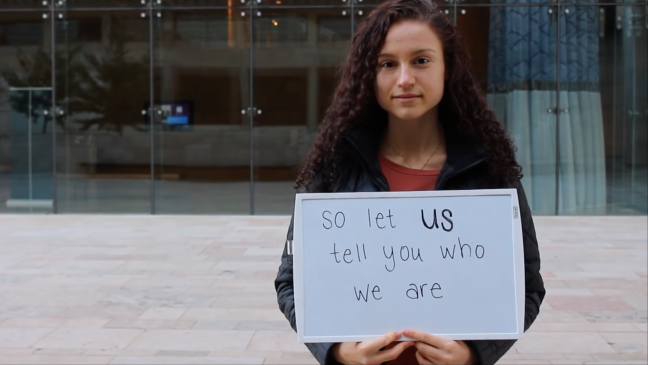In the year of 2013, one could hardly avoid news related to Chinese students studying in the United States. Chinese students were among the victims of the Asiana plane crash in San Francisco and the Boston Marathon bombing. American media have also recognized that the number of Chinese students at all levels is increasing at a unprecedented rate.
Admitting a large number of immigrants of all kinds is nothing new to the United States. The influx of Chinese students may test the inclusiveness of American universities like the University of Wisconsin. However, it could be a greater test of Chinese students’ abilities to adapt to their local communities.
In an effort to address these issues, my friends and I started a YouTube project, Channel C, where we tell our own stories of being Chinese students in America. Intended to raise awareness for young people like us, with our videos entitled “Why Chinese students don’t speak English?”, “Why Chinese students don’t party?” and “Who are the second generation rich Chinese students?” have successfully drawn attention from the general public.
Many of our videos start with the phrase “Why Chinese students don’t” because we had all been asked these questions directly or excluded explicitly because we did not act like some of our American peers. We don’t go out to house parties for four nights in a row starting on Wednesdays. We speak Chinese with each other, sometimes neglecting the feelings of others around us. We appear less active in class or in non-Chinese organizations. Videos on these topics drew the most attention.
We wanted to tell our American peers, other Badgers, that all the explicit or implicit pressure on us to behave like them has caused “adjustment fatigues,” driving us back to our own circles where we wouldn’t be judged for non-native English or reluctance to hug. Among the remaining few people who persist in their efforts to adjust, some chose to assimilate to the degree of cutting ties with other Chinese students. Others, like my friends and I, have struggled to walk the fine line between two lifestyles and value systems.
We founded this channel because we want more two-way discussions; how can we advocate for and benefit from diversity while the out-group is alienated precisely because of its differences. We want to challenge the status quo — the marginalization of Chinese students on campus and all the prejudiced assumptions behind questions like “why don’t Chinese students…” The desire for understanding and respect is common across all kinds of social groups and across all kinds of boundaries. We hope Americans around us will stop asking questions like “Why don’t they…” but start questions with phrases like “Why do they…” and “Why don’t we…”
Though the rankings may be arbitrary, a large number of the top 100 universities in the world are based in the United States. This is one major factor why more than 230 thousand Chinese students (nearly the population of Madison residents) have favored America over Europe, Canada and Australia. In our eyes, American higher education is at the forefront of innovations and ideas that constantly bring significant impacts to the world. Yet, its leadership in education and technology has undoubtedly benefited from a diverse pool of talent hailing from every country, with China sending more students to America than any other country. While Chinese students seek inspiration on American soil, their perspectives and knowledge can also be a resource to Americans and a facilitating factor for bilateral understanding and trust.
Badgers who grew up in the American Midwest, even some high school students, are very lucky in a way that the world sends itself to them, so they can explore views from other countries without having to leave home. As a Chinese Badger, all I hope is that my American peers realize their advantage and cherish these learning opportunities that are essentially free for them.
But are Chinese students responsible for the status quo? They certainly are.
My Chinese background has been more of a disadvantage than an advantage to me, except at the Chinese language table or in a sociology class about China. I came to realize my Chinese-ness is not valued or has no value in aspects that are not related to China. From the vantage point of hindsight, my realization seems laughable. Yet it was a harsh fact, something unexpected and unprecedented.
It is harsh because most Chinese studying in the United States came from a privileged background in China, and realizing we were an invisible minority in America caught many of us off guard. Being only children, belonging to the majority ethnic group in China, coming from upper-middle or upper-class families, speaking a foreign language learned in crammed schools, not having someone tell us what to do, expecting to make friends with white Americans rather than blacks or Latinos, not ready to handle criticism from American classmates about China — at least one of these above characteristics about Chinese students has hurt their ability to embrace their new life in the U.S.
Many Chinese students from all over the world have written to us to show their appreciation for speaking on their behalf. While I feel honored to be able to represent others without misrepresenting, I hope my fellow Chinese students can walk away knowing where they need to improve.
Our videos are an experimental project with self-reflections on our experiences as Chinese students in Madison. Through studying here and making these videos, we find our hypotheses about the two countries and ourselves constantly challenged and reconstructed. Nonetheless, by telling our personal stories and extending this conversation to different peoples, we hope to generate ongoing conversations that take place between equals. It is not about who is superior or whose standards should be followed. It is about bettering ourselves through learning about others and reflecting on our own.
Cecilia Miao ([email protected]) graduated in 2013 with a double major in political science and journalism and mass communication.



















